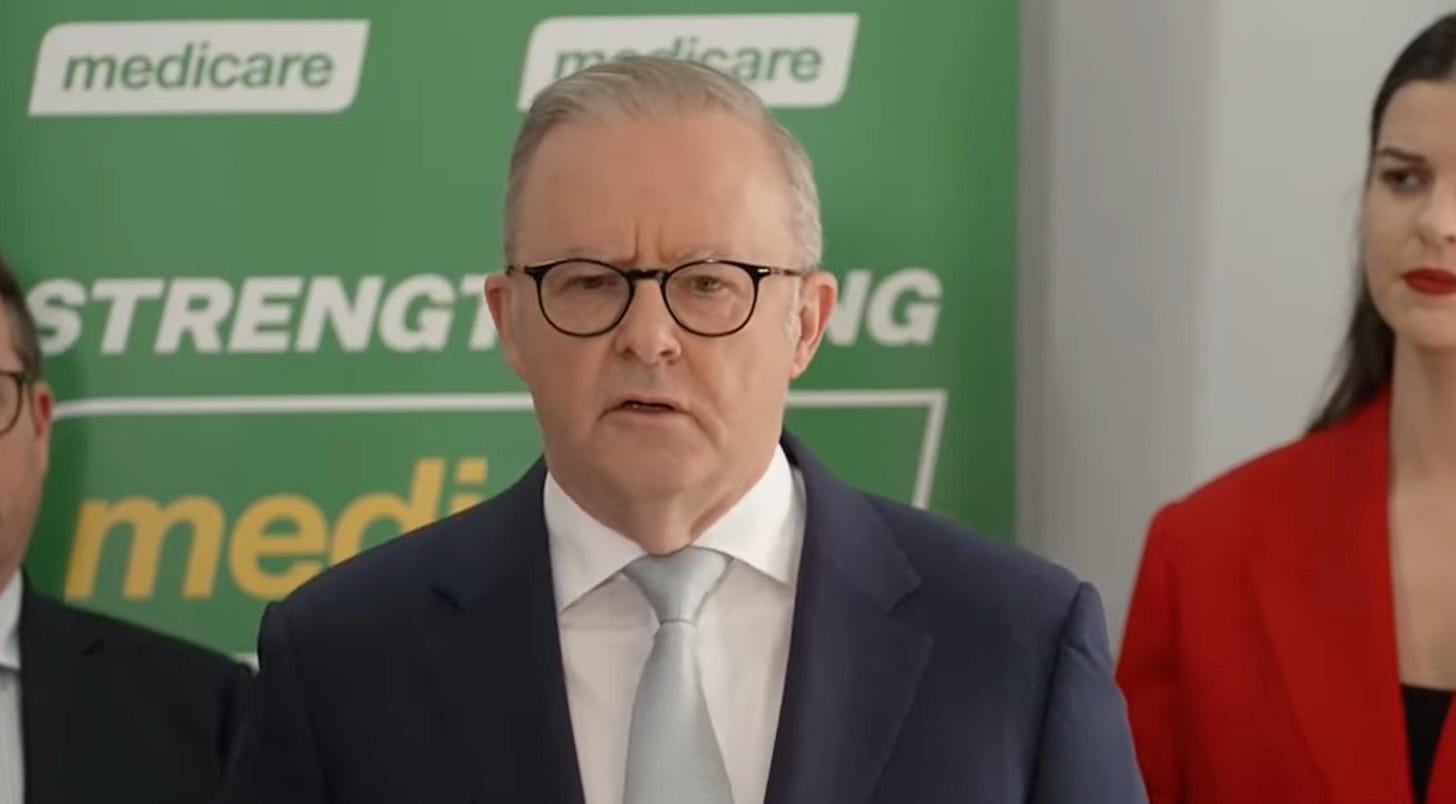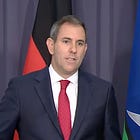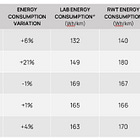Medicare Clinics Serve 1.8 Million Patients as Australia Opens 90th Facility
Prime Minister Albanese announces accelerated rollout of additional 50 clinics amid growing healthcare demands
Australia opened its 90th Medicare Urgent Care Clinic Thursday, marking a significant milestone in the government's healthcare expansion as Prime Minister Anthony Albanese announced plans to accelerate the rollout of 50 additional clinics nationwide.
The new clinic in Sunshine, Melbourne, was one of three facilities opening across Victoria, joining locations in Warrnambool and Warragul as the government works toward its goal of placing most Australians within driving distance of urgent care services.
"Today, we open the 90th Urgent Care Clinic," Albanese said during a media conference at the Sunshine facility. "We want most Australians to be within driving distance of a Medicare Urgent Care Clinic."
The clinics have served nearly 1.8 million patients since the program launched in 2023, with every visit fully bulk-billed through Medicare. About one-third of patients are children under 15, typically seeking treatment for sports injuries, cuts, abrasions, and broken bones that require urgent but non-life-threatening care.
Health Minister Mark Butler said the government aims to have as many as possible of the additional 50 clinics operational by Christmas, well ahead of the original mid-2026 timeline.
"We got expressions of interest, or a tender process, has already started for other clinics here in Melbourne," Butler said. "I'm really hopeful that as many will be open as possible by Christmas time."
When fully operational, the network of 137 clinics will serve approximately two million patients annually, with four in five Australians living within 20 minutes of an urgent care facility.
Healthcare System Relief
The expansion addresses mounting pressure on hospital emergency departments, particularly for non-emergency cases that nonetheless require immediate medical attention.
"We know if this clinic, and all the other ones like it, were not available, would end up in a hospital emergency department waiting for hours and hours and hours," Butler said. "So, not only is it good, affordable care - it's much more convenient and it's taking pressure off hospitals like the Sunshine Hospital here in Melbourne."
Assistant Treasurer Daniel Mulino, who represents the Fraser electorate that includes Sunshine, emphasized the community demand for accessible healthcare services.
"When I talk to people in my community, during the course of the last election, for many, access to affordable healthcare was their number one issue," Mulino said. "What we see with Urgent Care Clinics, is providing people with fully bulk billed services, seven days a week, over extended hours."
The government exceeded its original election commitment of 50 clinics by delivering 87 during its first term, then promised an additional 50 during the recent campaign.
Working From Home Policy Debate
The healthcare announcement coincided with questions about Victorian Premier Jacinta Allan's proposal to legislate working-from-home rights for two days per week for eligible workers.
Albanese defended flexible working arrangements, noting his government already enacted protections through the Secure Jobs, Better Pay legislation in 2022.
"We think that working from home, flexible working arrangements, can benefit both workers and employers," Albanese said. "During the election campaign, of course, that we have just seen, the Coalition promised, of course, to send people back to the office five days a week. That ended up with some of them not having an office anymore, because it was very badly received."
The Prime Minister dismissed concerns about workplace division between office-based and remote workers, comparing the debate to previous industrial relations changes.
"Every time an IR change is proposed, we hear suggestions that somehow this will undermine things," he said. "Remember, the Right to Disconnect was going to lead to absolute chaos out there. Well, guess what? We introduced it, it now is something that just a matter of fact and has been positive."
Truth matters. Quality journalism costs.
Your subscription to The Evening Post (Australia) directly funds the investigative reporting our democracy needs. For less than a coffee per week, you enable our journalists to uncover stories that powerful interests would rather keep hidden. There is no corporate influence involved. No compromises. Just honest journalism when we need it most.
Not ready to be paid subscribe, but appreciate the newsletter ? Grab us a beer or snag the exclusive ad spot at the top of next week's newsletter.
AI and Copyright Concerns
Albanese addressed growing concerns about artificial intelligence companies mining copyrighted content without compensating creators, describing AI as a "complex issue" requiring careful consideration.
"AI has the potential for massive productivity benefits," he said, citing a recent healthcare report showing positive impacts for medical professionals. "We need to engage in discourse about how we make sure that we maximise the benefits but minimise any of the other factors that need to be considered."
When pressed for guarantees about copyright protection, Albanese deferred to Treasurer Jim Chalmers' previous statements that the government has no plans to weaken copyright laws.
"Jim Chalmers answered the question," Albanese said, while acknowledging that "copyright and intellectual property is important."
Pharmaceutical Trade Tensions
The Prime Minister and Health Minister expressed concern about potential U.S. tariffs on pharmaceutical products, with reports suggesting increases up to 250% over the coming years.
Butler noted that Australia maintains the lowest general tariff position globally at 10%, calling even that level "still 10% higher than we think is appropriate given we've got a good history of free trade between our countries."
The potential tariffs particularly concern Melbourne-based pharmaceutical exports, including blood and plasma products manufactured by CSL.
"America exports more pharmaceuticals to Australia than we do to them. They do it on a tariff-free basis, that's served both of our countries very well and we'll continue to argue the case for a continuation of free trade in pharmaceuticals," Butler said.
Both officials stressed that Australia's Pharmaceutical Benefits Scheme remains non-negotiable.
"To the extent that this is motivated by big pharma companies seeking to lobby the US administration to water-down the protections of our PBS, it's simply not up for negotiation under our Government," Butler said.
Medicine Price Reductions
The government reinforced its commitment to affordable medications, with new legislation introduced to reduce PBS medicine costs to $25 - the same price as 2004.
"We introduced legislation last week to reduce the cost of medicines to $25 that are listed on the PBS," Albanese said. "It's meant savings for people. It's meant savings in terms of efficiency and productivity, people not having to get scripts, literally having to get half as many scripts, therefore double the time."
The 60-day dispensing policy, another recent change, has generated significant savings while improving convenience for patients.
Butler said the changes delivered approximately $1.5 billion in consumer savings during the government's previous term.
Tax Policy Questions
Albanese firmly rejected speculation about potential GST increases or changes to negative gearing, maintaining that government policy follows election commitments rather than external suggestions.
"There'll be a range of ideas floated. governments make government policy, and our tax policy, the only tax policy that we're implementing, is the one that we took to the election," he said.
The government's confirmed tax policy includes income tax reductions beginning July 1, 2026, with additional decreases the following year - measures the opposition voted against in Parliament.
"People can put forward whatever ideas they want, and what you'll see is five or six ideas coming forward a day. That's a good thing," Albanese said. "It's not government policy. Government policy is decided around a Cabinet table."
Middle East Diplomacy
The Prime Minister confirmed a recent conversation with Palestinian Authority President Mahmoud Abbas, discussing the humanitarian crisis in Gaza and prospects for a two-state solution.
"I have long said that I want to see Israelis and Palestinians to be able to live side-by-side in peace and security," Albanese said. "I think the entire international community is distressed by what we're seeing happening in Gaza."
The leaders agreed to meet in September during the UN General Assembly in New York, continuing discussions about governance reforms and regional stability.
New Zealand Relations
Albanese announced plans for a brief Saturday visit to New Zealand for annual bilateral talks with Prime Minister Christopher Luxon in Queenstown.
The discussions will cover trade relationships, migration policy changes that have eased pathways for New Zealand citizens seeking Australian citizenship, and international cooperation on climate change and Middle East issues.
"Australia and New Zealand are great friends, of course, across the ditch," Albanese said. "Our trade, our people-to-people links, the changes that we've made in migration as well to make it easier for Kiwis to become Australian citizens has been important going forward."
The meeting represents Australia's turn to visit, as the two nations alternate hosting duties annually. The agenda will also include commemorating ANZAC heritage at a memorial service.
Healthcare Infrastructure Investment
The urgent care clinic expansion represents a significant infrastructure investment in Australia's healthcare system, addressing both immediate patient needs and long-term capacity challenges.
Medical professionals at the Sunshine clinic described treating everything from minor injuries to broken bones - cases that would otherwise burden emergency departments designed for life-threatening situations.
"I've spoken with doctors and nurses here this morning, and they've spoken about people coming in for cuts or abrasions, broken bones – the sort of issues which aren't life threatening, but which require that urgent care," Albanese said.
The bulk-billing model ensures patients need only present their Medicare card for treatment, reinforcing the government's commitment to universal healthcare access.
"All they need is this little green and gold piece of plastic here. Green and gold for a reason, the Australian colours that we are proud of," Albanese said, holding up a Medicare card. "Each and every day that I'm the Prime Minister, I see this as representing Australian values."
The clinic network expansion forms part of the government's broader "Strengthening Medicare" agenda, which includes increasing bulk-billing rates, expanding the medical workforce, and reducing medication costs.
With tender processes already underway for additional Victorian clinics and similar procedures planned nationwide, the government appears positioned to meet or exceed its accelerated timeline for the healthcare expansion.
The 90th clinic milestone comes as Australia continues addressing post-pandemic healthcare challenges while building resilient systems for future health demands.
Got a News Tip?
Contact our editor via Proton Mail encrypted, X Direct Message, LinkedIn, or email. You can securely message him on Signal by using his username, Miko Santos.
As well as knowing you’re keeping Mencari (Australia) alive, you’ll also get:
Get breaking news AS IT HAPPENS - Gain instant access to our real-time coverage and analysis when major stories break, keeping you ahead of the curve
Unlock our COMPLETE content library - Enjoy unlimited access to every newsletter, podcast episode, and exclusive archive—all seamlessly available in your favorite podcast apps.
Join the conversation that matters - Be part of our vibrant community with full commenting privileges on all content, directly supporting The Evening Post (Australia)
Not ready to be paid subscribe, but appreciate the newsletter ? Grab us a beer or snag the exclusive ad spot at the top of next week's newsletter.










